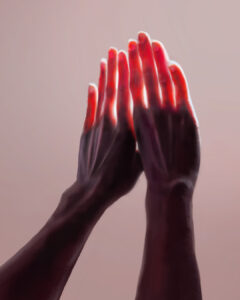About 20 years ago, I was awarded a Fulbright grant to teach journalism in Tirana, Albania, the capital city of what was then Europe’s poorest country. At that time, Albania lurched and sputtered in its rebranding from a mysterious Communist outpost to a capitalism-fueled democracy. When I arrived there, the country had no ATMs, no constitution and no steady stream of electricity.
Classes at the university were held in a three-story Italianate building, painted in a fading rose and mustard color. Two columns flanked a central staircase in the foyer, which always smelled faintly of the hygienically challenged Turkish toilets down the hall. Tucked in the foyer corner was the librari, a bookstore the size of a garden shed with broken, dusty panes of glass and a chunky padlock on the door.
There were no closets fattened with supplies, no humming Xerox machines, no glossy catalogues and no textbooks. Entry to the school was by examination or by forking over a hefty bribe.
My classroom sat on the third floor, room 305. The students shared desks and wobbled on mismatched chairs. A square of black paint swathed onto the wall served as the blackboard. No eraser. No chalk. Casement windows along one wall provided the only source of light.
It’s the first day of class. I’m nervous, but curiosity propels me past fear. Diana, a television reporter who is also my translator, stands beside me. I ask the students to introduce themselves. They wear jeans and backpacks. Their names are dissonant jazz: Etjola, Gjergj, Xhulieta, Zylyftar, Ermal, Manjola.
One of my students is Alfred, a young man with a slight scowl, cheekbones like diving platforms and zealously moussed hair. His hands are luminous with long, white fingers. In my mind I nickname him Tragic Balkan Poet. I scan the 29 faces and return to Alfred’s. I am drawn to how pale and haunted he looks.
I ask the students to write a paragraph explaining why they want to be journalists. Diana reads their responses later as we sit in Cafe John Belushi and drink warm, foamy Turkish concoctions called salep.
Alfred wrote, “I love the horror of being with a white sheet of paper that has to be filled.” Mira wrote, “It is something difficult and things difficult are also beautiful.” Alban wrote, “Suffering is the most important thing in life. I am nothing if I cannot tell my stories.” Perhaps they’re all tragic Balkan poets.
I write a comment on Alfred’s paper, complimenting his lyrical prose. “There’s a hint of poetry in your writing, your word play,” I say.
After the next class he approaches me. His hands tremble slightly and his eyes dart. In a soft, papery voice he asks Diana to tell me that he is indeed a poet. He says he has published a slim volume of his work. It is entitled, “I Am Born Dead.”
The semester unfolds. I announce that every Friday I will park myself from 11 a.m.-3 p.m. at Cafe Pergolah, a small place with outdoor tables near the university. If anyone wants to come by and chat, I will buy the coffee. We’ll be on our own with language, I say. Diana won’t be there to translate.
About a dozen students show up on those Fridays. Alfred is always among them. We cluster around a couple of tables. The students smoke bootleg Marlboro Lights, sip espresso and Fantas. They become my teachers as I use the Albanian I am learning. To communicate we try English, a bit of French, some Italian, a heavy dose of charades. They call me zyshe (zoosh), slang for professor. They chatter and giggle and shyly ask about my life in America. All except Alfred. I don’t speak English, he says to explain his silences. But when I tell a joke, he laughs before it is translated. When I make a play on words, his eyes register understanding.
When Diana and I meet after class to grade papers, I ask her to save Alfred’s for last. Like dessert. Every week, his writing radiates eloquence and soulfulness. His stories are of children who beg on the streets, of bereft old people attempting to eke dignity out of this coarse society, of a kindly neighbor who insists on feeding a gang of mangy, homeless dogs that skulks around her neighborhood. Laced with gentle melancholy, his stories help me penetrate this land and this city so alien and confusing. I write heartfelt, encouraging comments, and still, at the Friday gatherings, he says nothing. The silent Tragic Balkan Poet.
Tears filled my eyes. I didn’t know what to say. He’d been so silent for so long. Streams of questions rushed through my head, but they remained unasked. “I will remember you, too, Alfred,” I said. He shook my hand and left.
And I do remember him. I remember the windows his stories opened. I remember the delicate filigree of his language, his mournful characters. And mostly, I remember his hands: They looked as if they were lit from within.


